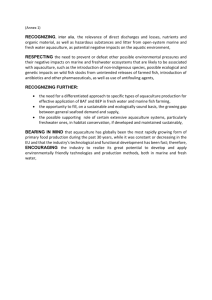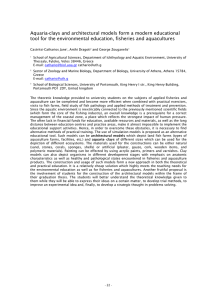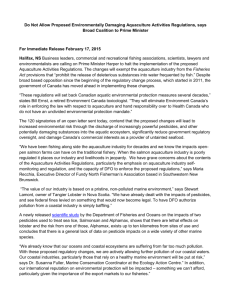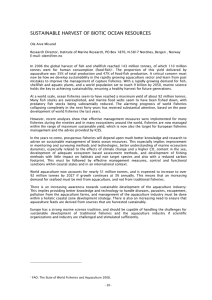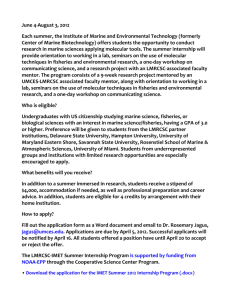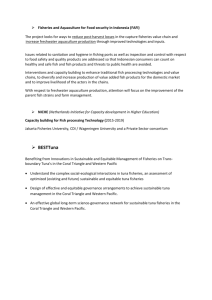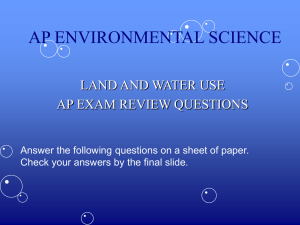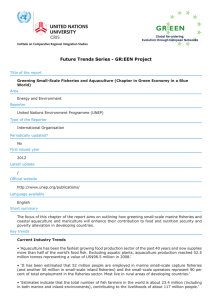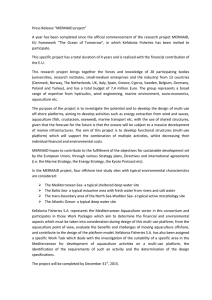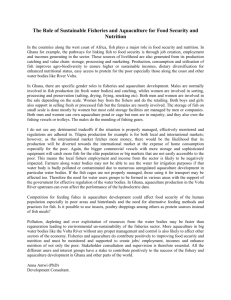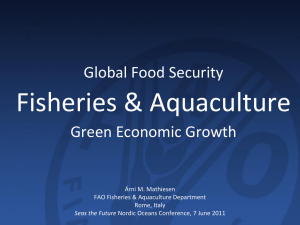Instructor/Presenter
advertisement
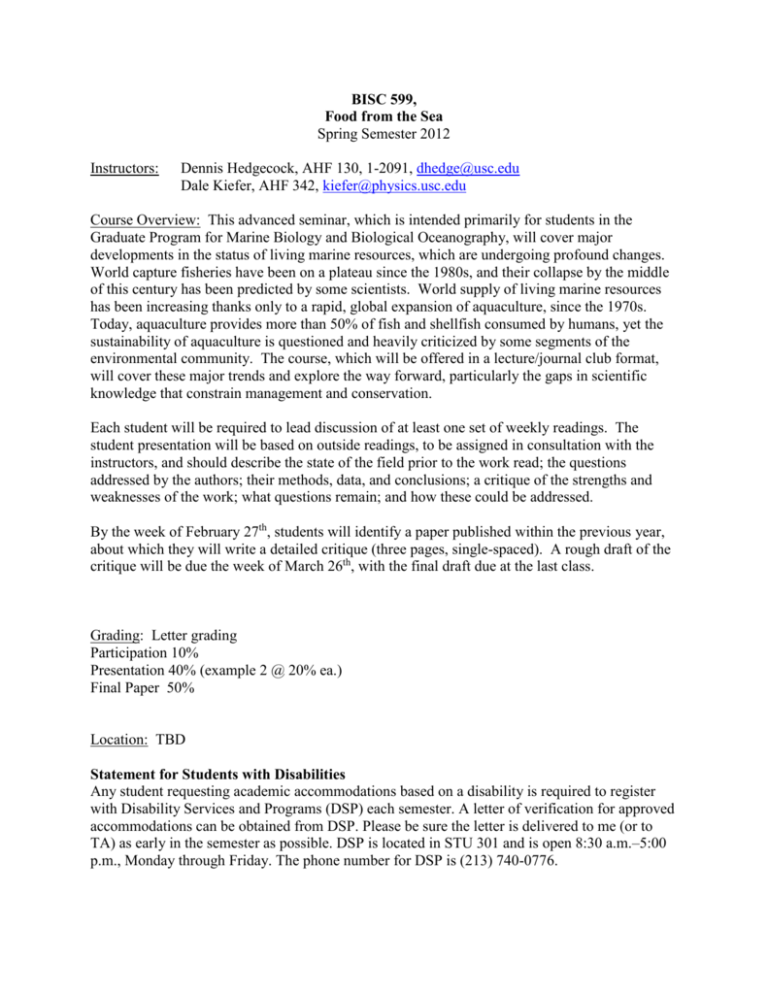
BISC 599, Food from the Sea Spring Semester 2012 Instructors: Dennis Hedgecock, AHF 130, 1-2091, dhedge@usc.edu Dale Kiefer, AHF 342, kiefer@physics.usc.edu Course Overview: This advanced seminar, which is intended primarily for students in the Graduate Program for Marine Biology and Biological Oceanography, will cover major developments in the status of living marine resources, which are undergoing profound changes. World capture fisheries have been on a plateau since the 1980s, and their collapse by the middle of this century has been predicted by some scientists. World supply of living marine resources has been increasing thanks only to a rapid, global expansion of aquaculture, since the 1970s. Today, aquaculture provides more than 50% of fish and shellfish consumed by humans, yet the sustainability of aquaculture is questioned and heavily criticized by some segments of the environmental community. The course, which will be offered in a lecture/journal club format, will cover these major trends and explore the way forward, particularly the gaps in scientific knowledge that constrain management and conservation. Each student will be required to lead discussion of at least one set of weekly readings. The student presentation will be based on outside readings, to be assigned in consultation with the instructors, and should describe the state of the field prior to the work read; the questions addressed by the authors; their methods, data, and conclusions; a critique of the strengths and weaknesses of the work; what questions remain; and how these could be addressed. By the week of February 27th, students will identify a paper published within the previous year, about which they will write a detailed critique (three pages, single-spaced). A rough draft of the critique will be due the week of March 26th, with the final draft due at the last class. Grading: Letter grading Participation 10% Presentation 40% (example 2 @ 20% ea.) Final Paper 50% Location: TBD Statement for Students with Disabilities Any student requesting academic accommodations based on a disability is required to register with Disability Services and Programs (DSP) each semester. A letter of verification for approved accommodations can be obtained from DSP. Please be sure the letter is delivered to me (or to TA) as early in the semester as possible. DSP is located in STU 301 and is open 8:30 a.m.–5:00 p.m., Monday through Friday. The phone number for DSP is (213) 740-0776. Statement on Academic Integrity USC seeks to maintain an optimal learning environment. General principles of academic honesty include the concept of respect for the intellectual property of others, the expectation that individual work will be submitted unless otherwise allowed by an instructor, and the obligations both to protect one’s own academic work from misuse by others as well as to avoid using another’s work as one’s own. All students are expected to understand and abide by these principles. Scampus, the Student Guidebook, contains the Student Conduct Code in Section 11.00, while the recommended sanctions are located in Appendix A: http://www.usc.edu/dept/publications/SCAMPUS/gov/. Students will be referred to the Office of Student Judicial Affairs and Community Standards for further review, should there be any Week 1 Date Jan 9 Readings Ryther, J. 1969. Photosynthesis and fish production in the sea. Science Pauley, D. et al. 1998. Fishing down marine food webs. Science 2 Jan 16 Myers RA, Worm B. 2003. Rapid worldwide depletion of predatory fish communities. Nature 423:280-283. Hampton J, Siebert JR, Kleiber P, Maunder MN, Harley SJ. 2005. Decline of Pacific tuna populations exaggerated? Nature 434:E1-E2. 3 Jan 23 Worm B, et al. 2006. Impacts of biodiversity loss on ocean ecosystem services. Science 314(5800)787-790. 4 Jan 30 Hillborn R. 2006. Faith-based fisheries. Fisheries 31(11)554-555. 5 Feb 6 Longhurst A. 2007. Doubt and certainty in fishery science: Are we really headed for a global collapse of stocks? Fisheries Research 86:15. 6 Feb 13 Beddington JR, DJ Agnew, and CW Clark. 2007. Current problems in the management of marine fisheries. Science 316:1713-1716. 7 Feb 20 Costello C, SD Gaines, and J Lynham. 2008. Can catch shares prevent fisheries collapse? Science 321:1678-1681. 8 Feb 27 Worm, B., et al. 2009. Rebuilding Global Fisheries. Science 325, 578 9 Mar 5 Naylor et al 2000 Effect of aquaculture on world fish supplies. Nature Naylor et al. 2001 Science Aquaculture -- a gateway for exotic species Mar 12 - 16: Spring Break 10 Mar 19 Pauly D et al. 2002 Towards sustainability in world fisheries Nature 418: 689-695 11 Mar 26 Halpern BS, Walbridge S, Selkoe KA, et al. 2008. A global map of human impact on marine ecosystems. Science 319: 948-952. 12 Apr 2 Tacon & Metian 2008. Global overview on the use of fish meal and fish oil in industrially compounded aquafeeds: Trends and future Instructor/Presenter Week Date Readings prospects. Aquaculture Tacon & Metian 2009 Fishing for feed or fishing for food: Increasing global competition for small pelagic forage fish. Ambio 13 Apr 9 14 Apr 16 15 Apr 23 Naylor, RL et al 2009 Feeding aquaculture in an era of finite resources. PNAS Hedgecock, D. 2011. Aquaculture: the next wave of domestication. In Biodiversity in Agriculture: Domestication, Evolution, and Sustainability Instructor/Presenter
